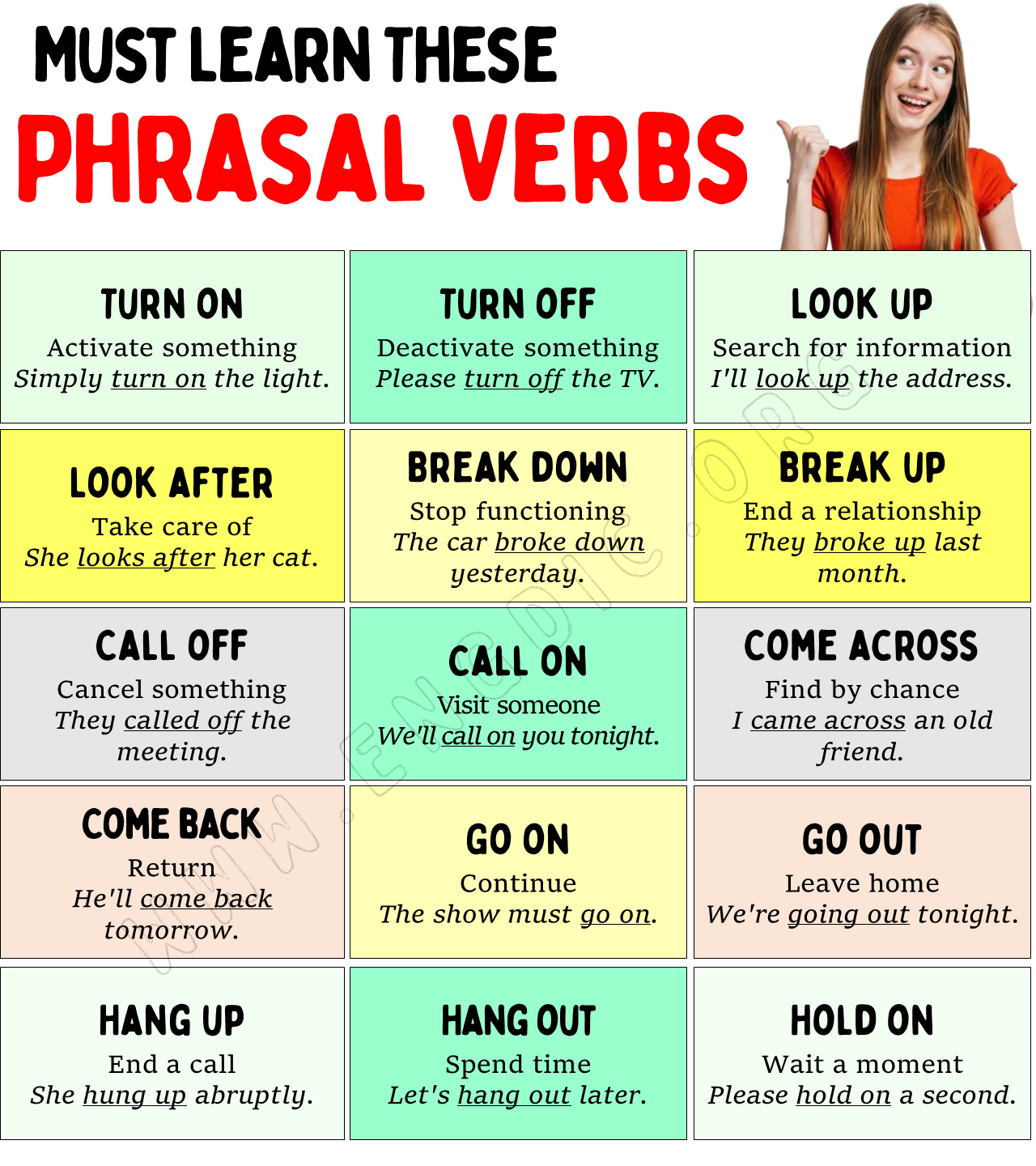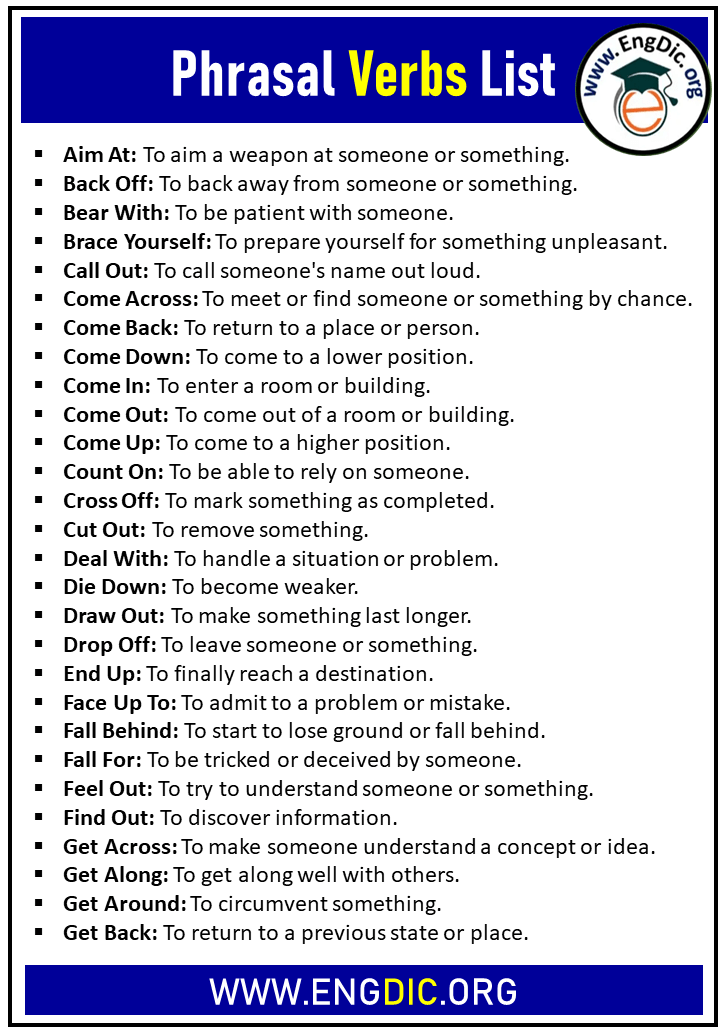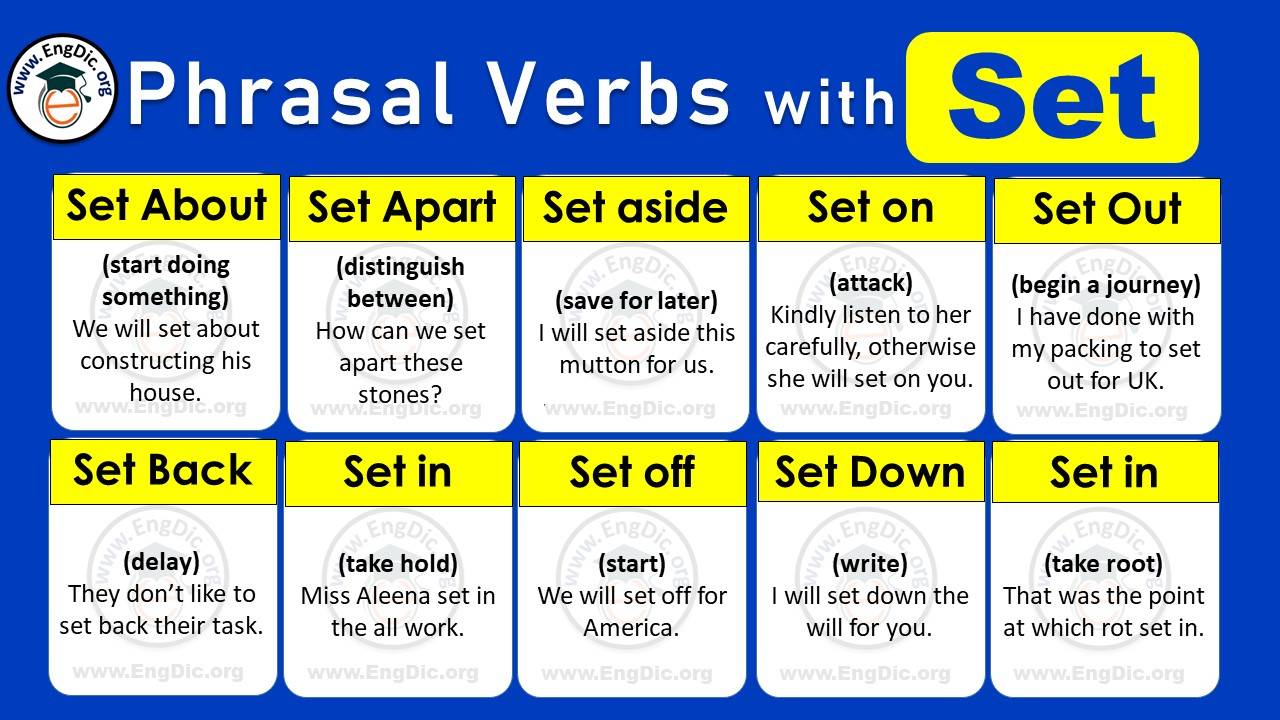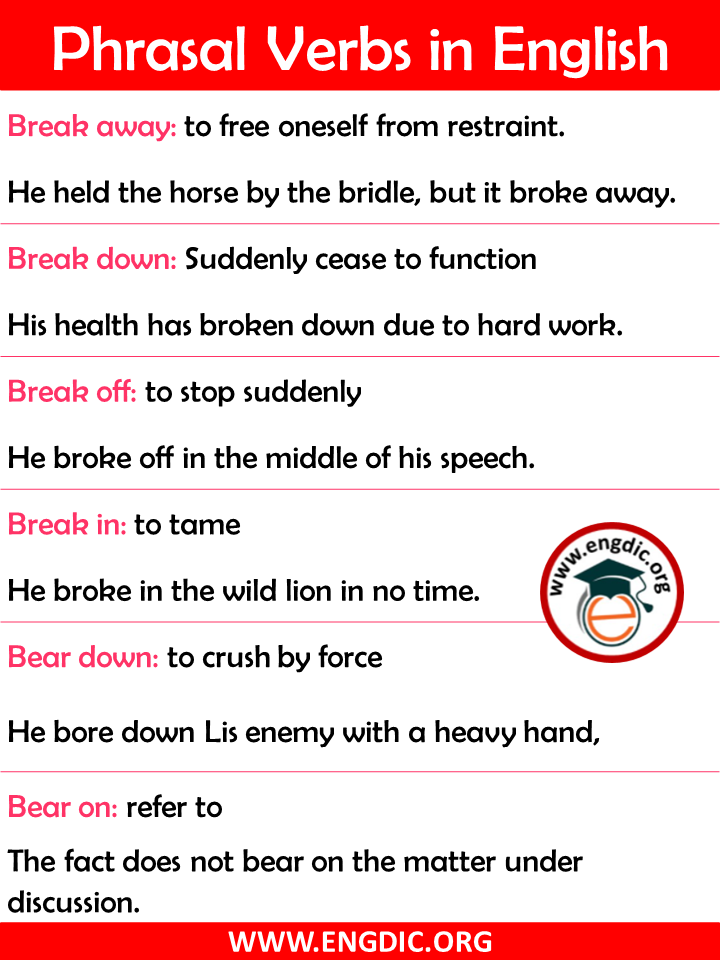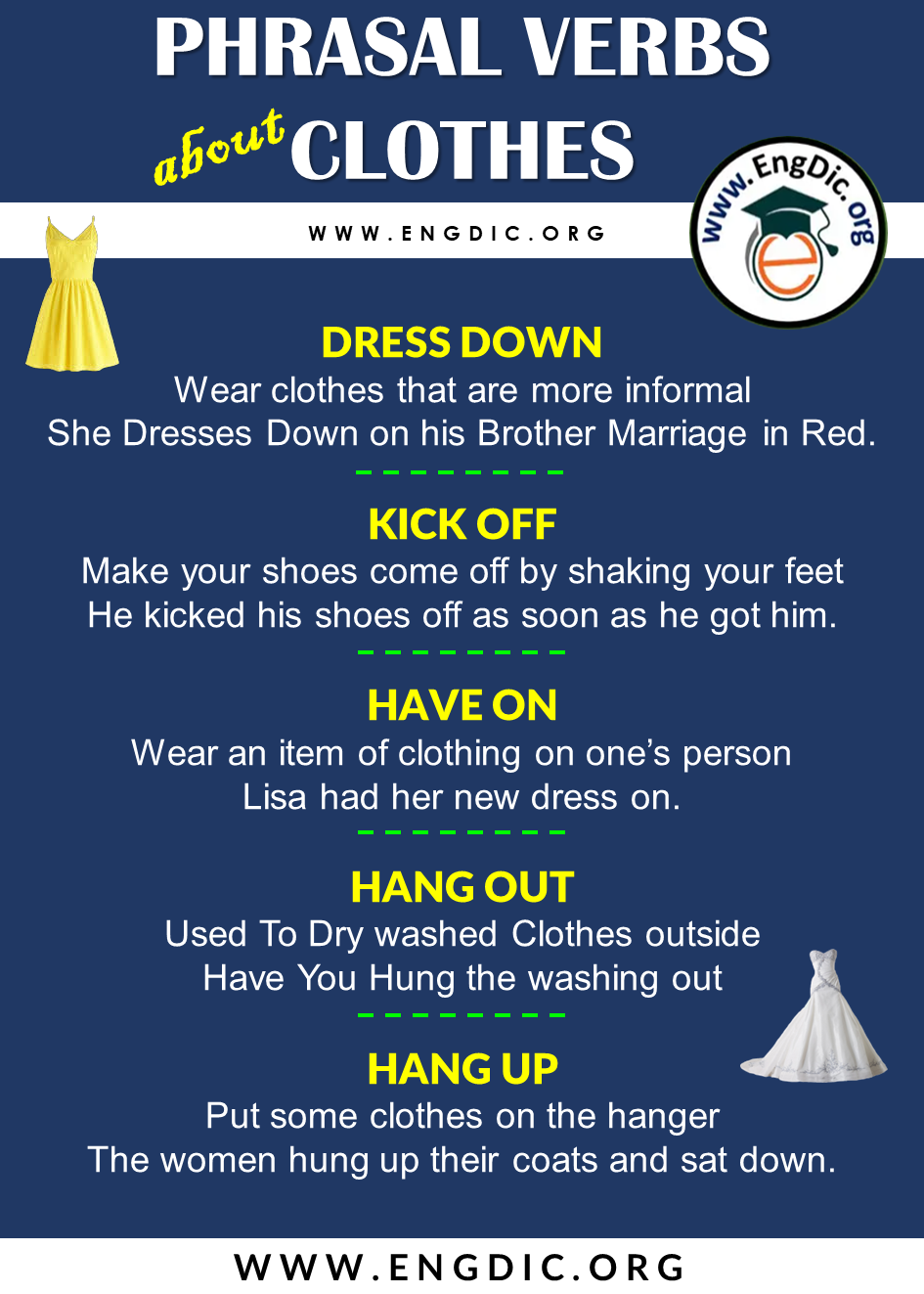Do you know how to use phrasal verbs in English? If not, don’t worry! This 100 phrasal verb list will teach you everything you need to know. Each phrasal verb has an example sentence and its meaning. Check it out now!
Phrasal Verbs List
Here are the 20 most popular phrasal verbs list:
- Turn on: Activate something
Lights turn on automatically. - Turn off: Deactivate something
Please turn off the TV. - Look up: Search for information
I’ll look up the address. - Look after: Take care of
She looks after her cat. - Break down: Stop functioning
The car broke down yesterday. - Break up: End a relationship
They broke up last month. - Call off: Cancel something
They called off the meeting. - Call on: Visit someone
We’ll call on you tonight. - Come across: Find by chance
I came across an old friend. - Come back: Return
He’ll come back tomorrow. - Go on: Continue
The show must go on. - Go out: Leave home
We’re going out tonight. - Hang up: End a call
She hung up abruptly. - Hang out: Spend time
Let’s hang out later. - Hold on: Wait a moment
Please hold on a second. - Hold back: Restrain
Tears were held back. - Put on: Wear something
She put on her coat. - Put off: Postpone
We put off the trip. - Take off: Remove
He took off his shoes. - Take up: Start a hobby
She took up painting.
Other phrasal verbs with their meaning:
- Aim At: To aim a weapon at someone or something.
- Back Off: To back away from someone or something.
- Bear With: To be patient with someone.
- Brace Yourself: To prepare yourself for something unpleasant.
- Call Out: To call someone’s name out loud.
- Come Across: To meet or find someone or something by chance.
- Come Back: To return to a place or person.
- Come Down: To come to a lower position.
- Come In: To enter a room or building.
- Come Out: To come out of a room or building.
- Come Up: To come to a higher position.
- Count On: To be able to rely on someone.
- Cross Off: To mark something as completed.
- Cut Out: To remove something.
- Deal With: To handle a situation or problem.
- Die Down: To become weaker.
- Draw Out: To make something last longer.
- Drop Off: To leave someone or something.
- End Up: To finally reach a destination.
- Face Up To: To admit to a problem or mistake.
- Fall Behind: To start to lose ground or fall behind.
- Fall For: To be tricked or deceived by someone.
- Feel Out: To try to understand someone or something.
- Find Out: To discover information.
- Get Across: To make someone understand a concept or idea.
- Get Along: To get along well with others.
- Get Around: To circumvent something.
- Get Back: To return to a previous state or place.
- Get By: To just manage to survive.
- Get In: To enter a vehicle.
- Get On: To board a bus, train, or plane.
- Get Out: To exit a vehicle.
- Get Through: To successfully make it to the end of something.
- Give In: To stop resisting or arguing.
- Go After: To pursue someone or something.
- Go Around: To take a longer route.
- Go Back: To return to a previous place or time.
- Go Down: To go to a lower level.
- Go Forth: To leave and commence an activity.
- Go In: To enter a place.
- Go Off: To explode or to stop working.
- Go On: To continue.
- Go Out: To exit a place.
- Go Over: To review something.
- Go Through: To experience something.
- Handle With Care: To be careful with someone or something.
- Hold Off: To postpone or delay something.
- Keep At: To persist with something.
- Keep Away: To stay away from someone or something.
- Keep Back: To stay behind someone.
- Keep Up: To maintain the same pace or level.
- Let Down: To disappoint someone.
- Look After: To take care of someone or something.
- Look For: To try to find someone or something.
- Look Out: To be careful.
- Make Away: To escape.
- Make Up: To create an excuse or justification.
- Pass Away: To die.
- Pick Up: To collect someone or something.
- Put Across: to explain an idea or concept so that others understand it
- Put Down: to criticize someone or something
- Put Off: to postpone something
- Reach Out: to try to contact someone
- Run Into: to meet someone by chance
- See Off: to say goodbye to someone as they leave
- Set In: To start to happen or become established.
- Start Up: To begin a process or event.
- Take After: To resemble one’s parents or ancestors.
- Take Back: to retract something that has been said
- Take Down: to write information or a statement.
- Take In: to understand or comprehend something.
- Take On: to accept a challenge or responsibility.
- Talk Back: To respond rudely to someone who is trying to discipline you.
- Tear Down: To demolish or destroy something.
- Think Over: To consider an idea or plan.
- Watch Out: To be careful.
- Work Out: To exercise or to solve a problem.
- Write Down: To record information.
- Take Over: To assume control of something.
